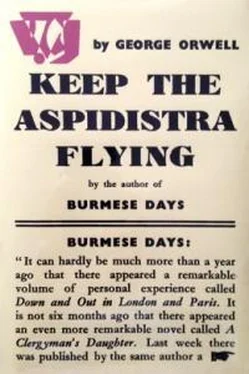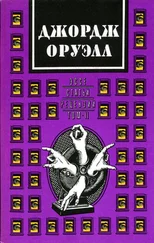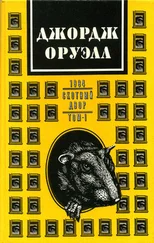He offered Gordon the job. It was very simple. All you had to do was to remain there ten hours a day, hand out the book, take the money, and choke off the more obvious book–pinchers. The pay, he added with a measuring, sidelong glance, was thirty shillings a week.
Gordon accepted promptly. Mr Cheeseman was perhaps faintly disappointed. He had expected an argument, and would have enjoyed crushing Gordon by reminding him that beggars can't be choosers. But Gordon was satisfied. The job would do. There was no TROUBLE about a job like this; no room for ambition, no effort, no hope. Ten bob less—ten bob nearer the mud. It was what he wanted.
He 'borrowed' another two pounds from Ravelston and took a furnished bed–sitting room, eight bob a week, in a filthy alley parallel to Lambeth Cut. Mr Cheeseman ordered the five hundred assorted titles, and Gordon started work on the twentieth of December. This, as it happened, was his thirtieth birthday.
Under ground, under ground! Down in the safe soft womb of earth, where there is no getting of jobs or losing of jobs, no relatives or friends to plague you, no hope, fear, ambition, honour, duty— no DUNS of any kind. That was where he wished to be.
Yet it was not death, actual physical death, that he wished for. It was a queer feeling that he had. It had been with him ever since that morning when he had woken up in the police cell. The evil, mutinous mood that comes after drunkenness seemed to have set into a habit. That drunken night had marked a period in his life. It had dragged him downward with strange suddenness. Before, he had fought against the money–code, and yet he had clung to his wretched remnant of decency. But now it was precisely from decency that he wanted to escape. He wanted to go down, deep down, into some world where decency no longer mattered; to cut the strings of his self–respect, to submerge himself—to SINK, as Rosemary had said. It was all bound up in his mind with the thought of being UNDER GROUND. He liked to think about the lost people, the under– ground people: tramps, beggars, criminals, prostitutes. It is a good world that they inhabit, down there in their frowzy kips and spikes. He liked to think that beneath the world of money there is that great sluttish underworld where failure and success have no meaning; a sort of kingdom of ghosts where all are equal. That was where he wished to be, down in the ghost–kingdom, BELOW ambition. It comforted him somehow to think of the smoke–dim slums of South London sprawling on and on, a huge graceless wilderness where you could lose yourself for ever.
And in a way this job was what he wanted; at any rate, it was something near what he wanted. Down there in Lambeth, in winter, in the murky streets where the sepia–shadowed faces of tea– drunkards drifted through the mist, you had a SUBMERGED feeling. Down here you had no contact with money or with culture. No highbrow customers to whom you had to act the highbrow; no one who was capable of asking you, in that prying way that prosperous people have, 'What are you, with your brains and education, doing in a job like this?' You were just part of the slum, and, like all slum–dwellers, taken for granted. The youths and girls and draggled middle–aged women who came to the library scarcely even spotted the fact that Gordon was an educated man. He was just 'the bloke at the library', and practically one of themselves.
The job itself, of course, was of inconceivable futility. You just sat there, ten hours a day, six hours on Thursdays, handing out books, registering them, and receiving twopences. Between whiles there was nothing to do except read. There was nothing worth watching in the desolate street outside. The principal event of the day was when the hearse drove up to the undertaker's establishment next door. This had a faint interest for Gordon, because the dye was wearing off one of the horses and it was assuming by degrees a curious purplish–brown shade. Much of the time, when no customers came, he spent reading the yellow–jacketed trash that the library contained. Books of that type you could read at the rate of one an hour. And they were the kind of books that suited him nowadays. It is real 'escape literature', that stuff in the twopenny libraries. Nothing has ever been devised that puts less strain on the intelligence; even a film, by comparison, demands a certain effort. And so when a customer demanded a book of this category or that, whether it was 'Sex' or 'Crime' or 'Wild West' or 'ROmance' (always with the accent on the O). Gordon was ready with expert advice.
Mr Cheeseman was not a bad person to work for, so long as you understood that if you worked till the Day of Judgement you would never get a rise of wages. Needless to say, he suspected Gordon of pinching the till–money. After a week or two he devised a new system of booking, by which he could tell how many books had been taken out and check this with the day's takings. But it was still (he reflected) in Gordon's power to issue books and make no record of them; and so the possibility that Gordon might be cheating him of sixpence or even a shilling a day continued to trouble him, like the pea under the princess's mattress. Yet he was not absolutely unlikeable, in his sinister, dwarfish way. In the evenings, after he had shut the shop, when he came along to the library to collect the day's takings, he would stay talking to Gordon for a while and recounting with nosy chuckles any particularly astute swindles that he had worked lately. From these conversations Gordon pieced together Mr Cheeseman's history. He had been brought up in the old–clothes trade, which was his spiritual vocation, so to speak, and had inherited the bookshop from an uncle three years ago. At that time it was one of those dreadful bookshops in which there are not even any shelves, in which the books lie about in monstrous dusty piles with no attempt at classification. It was frequented to some extent by book–collectors, because there was occasionally a valuable book among the piles of rubbish, but mainly it kept going by selling secondhand paper–covered thrillers at twopence each. Over this dustheap Mr Cheeseman had presided, at first, with intense disgust. He loathed books and had not yet grasped that there was money to be made out of them. He was still keeping his old–clothes shop going by means of a deputy, and intended to return to it as soon as he could get a good offer for the bookshop. But presently it was borne in upon him that books, properly handled, are worth money. As soon as he had made this discovery he developed as astonishing flair for bookdealing. Within two years he had worked his shop up till it was one of the best 'rare' bookshops of its size in London. To him a book was as purely an article of merchandise as a pair of second–hand trousers. He had never in his life READ a book himself, nor could he conceive why anyone should want to do so. His attitude towards the collectors who pored so lovingly over his rare editions was that of a sexually cold prostitute towards her clientele. Yet he seemed to know by the mere feel of a book whether it was valuable or not. His head was a perfect mine of auction–records and first–edition dates, and he had a marvellous nose for a bargain. His favourite way of acquiring stock was to buy up the libraries of people who had just died, especially clergymen. Whenever a clergyman died Mr Cheeseman was on the spot with the promptness of a vulture. Clergymen, he explained to Gordon, so often have good libraries and ignorant widows. He lived over the shop, was unmarried, of course, and had no amusements and seemingly no friends. Gordon used sometimes to wonder what Mr Cheeseman did with himself in the evenings, when he was not out snooping after bargains. He had a mental picture of Mr Cheeseman sitting in a double–locked room with the shutters over the windows, counting piles of half–crowns and bundles of pound notes which he stowed carefully away in cigarette–tins.
Читать дальше








